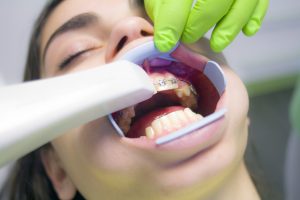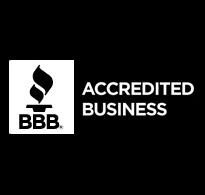
Everyone wants a healthy, straight smile. If you have misaligned teeth, you have a few options to achieve the smile of your dreams – namely, braces or clear aligners. Both braces and clear aligners do a great job at aligning your teeth. However, since the two aren’t created equally, you might be wondering which option to use to align your teeth. This article will help you pick the best option for you.
Braces vs. Clear Aligners
Braces and clear aligners both straighten the teeth, but that’s about where the similarities end.
Metal braces are brackets made of stainless steel that orthodontists affix to your teeth. They have wires threaded throughout the brackets, and tiny rubber bands connect them. Over time, and with regular adjustments, they force teeth to move to the ideal position.
On the other hand, clear aligners are a set of progressively tighter clear trays that are created to fit your team and are switched out every few months to adjust the way your teeth are moving.
Advantages of Braces
- Braces are versatile. Unlike aligners, they can be a treatment option for all cases.
- Not all braces are created equally. There are different varieties and styles available. You can choose colored or non-colored ones or go for porcelain braces that aren’t as conspicuous as metal braces.
- Unlike aligners, braces are fixed to your teeth. Therefore, you can easily keep up with your treatment since you can’t remove them or decide when to wear them and when not to.
- They are more effective compared to aligners since you wear them during the entire treatment.
- They are ideal for people of all ages.
- They are often more affordable than clear aligners.
- Treatment can often be faster than with clear aligners. At Carolina Family Dentistry, we specialize in Six Month Smiles, a cosmetic braces system that can give you a straighter smile in as little as six months!
Disadvantages of Braces
- Cleaning teeth with braces on can pose a challenge. If you don’t clean your teeth properly, they may end up damaged, forcing you to remove the braces earlier than recommended; thus, you won’t get the desired results.
- Braces may have an impact on your diet. Your orthodontist will advise you against eating hard foods that may damage your braces. Additionally, you may have to avoid sticky or sugary foods since your teeth are more susceptible to decay when you have braces on.
- Traditional braces are more conspicuous than clear aligners.
- With braces, you may have to visit your orthodontist more frequently than with aligners for adjustments.
Advantages of Clear Aligners
- Aligners are not as noticeable as braces.
- You don’t have to change your diet when you get aligners because you can remove them before you eat.
- You don’t have to change your daily hygiene routine with aligners; you can remove them and floss or brush your teeth as usual, which can result in less damage to your teeth.
- Visits to the orthodontists are usually simpler and less frequent since the orthodontist pre-plans tooth movement.
- Most patients have reported that aligners are more comfortable than braces since they are softer on the lips and cheeks. They are generally smoother than braces.
Disadvantages of Clear Aligners
- You have to be very disciplined for aligners to work. Orthodontists recommend that you wear them for at least 22 hours every day for them to be effective. Therefore, you should only remove them when eating, brushing, or flossing your teeth.
- Unlike braces, aligners can’t treat all conditions, specifically complex ones. Depending on your case, you may end up needing braces in the long run.
- Aligners may be costlier than braces. If they don’t fall within your budget, you may have to reconsider other options.
Which Option Is Right For You?
Here are a few factors you should consider when deciding between getting braces or aligners:
- Comfort: Which option would you be most comfortable with?
- Compliance: how much effort do you want to make during the treatment?
- Cost: what’s your budget?
- Convenience: how often do you want to visit your orthodontist?
- Cosmetics: do you want everyone to know about your treatment, or would you rather keep it on the down-low?
Choosing between braces and aligners is a big decision. Before making any decisions, we recommend that you speak with your dentist or orthodontist about the solution that is best for you. If you are looking to get braces or aligners, contact us to schedule an appointment. Our experts will give you the necessary guidance and walk with you every step of the way.







